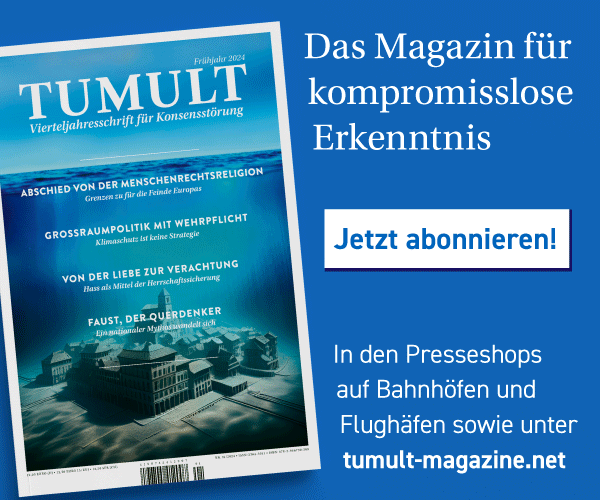Policy Exchange (der Think Tank, für den ich arbeite) hat heute einen neuen Report (“Islam in Australia”) über den Umgang mit dem radikalen Islam veröffentlicht. Autor ist Gerard Henderson, der frühere Stabschef des australischen Premierministers John Howard.
Hier unsere Presseerklärung dazu:
British politicians of all parties and Muslim representatives believe there are lessons to be learned from Australia
New Policy Exchange report discovers a more robust approach to community cohesion issues on the other side of the world
On the eve of the Australian general election and the 5th anniversary of the Bali bombings, some of the principles underlying the Australian approach to its Muslim population have found favour with a group of British politicians and British Muslim leaders. In their signed statement, they praise Australia’s bipartisan approach to security legislation; the system of consultations that underpins bipartisanship; their blunt approach to the source of the threat [e.g. by using the term ‘radical Islamists]; their model of multiculturalism as a means for further integration; and, the clear disavowal of those who do not support democracy and do not condemn terrorism at home or abroad.
In the celebrated report When Progressives Treat With Reactionaries: the British State’s Flirtation With Radical Islamism (Policy Exchange, 2006) by Martin Bright a number of recommendations were made about how Britain should handle radical Islamists. What the political editor of the New Statesman proposed for the UK is already largely in place in Australia, according to today’s report ‘Islam in Australia: Democratic Bipartisanship in action’.
Written by Gerard Henderson, Executive Director of The Sydney Institute thinktank and former Chief of Staff to Australian PM John Howard, the report ‘Islam in Australia’ describes the strong bipartisan approach of the centre-right Australian government and the centre-left opposition Labor Party when it comes to appropriate national security legislation.
Coming as it does in a week when there is much talk in UK politics about the need for bipartisanship, the report finds that the Liberal-Labor bipartisan approach - in an Anglophone country that has been the target of Islamist terrorism – has proved broadly successful. As Henderson concludes: “Australia remains a terrorist target for overseas-based and home-grown terrorists. However, the evidence suggests that the clear message that all Australians are expected to accept the tenets of Australian democracy – along with the bipartisan support for equipping police and intelligence services with substantial national security powers – seems to be bearing results.”
When it was decided that special action should be taken in Australia following the 7/7 attacks in London in 2005, the Howard Government consciously chose not to consult with existing Muslim groups – some of which had radical leaders. Instead the Prime Minister set up the Muslim Community Reference Group (MCRG). Those with extreme views were not invited to join.
The MCRG demonstrated, first, that the Australian Government would not give credibility to individuals who are ambivalent to, or in praise of, terrorist jihad in any nation. Second, there is a prevailing view at a government level in Australia that the best way to enhance the standing of genuinely moderate Muslims is for governments to treat with them, rather than with their radical or extremist counterparts. Third, the refusal to treat with radical Muslims, along with an overall tough-minded approach to national security, provides no political oxygen to the extreme Right to engage in the politics of backlash.
In a controversial decision, Mufti of Australia was appointed to the Muslim Community Reference Group but was immediately dropped from the group when he was reported as having claimed that women who wear what he described as immodest clothing invited rape. When he subsequently made comments critical of Australian democracy, quite a few Australians of Islamic faith spoke out.
There is little doubt, Henderson concludes, that the criticisms which PM John Howard and Opposition leaders Kevin Rudd levelled at the Mufti after his January 2007 outburst created a climate in which Muslim Australians felt freer to state their own views than would otherwise have been the case. This has been part of a trend. In Australia, unlike in Britain on occasion, political leaders - from the Prime Minister and Opposition leader down – have been quick to criticise radical statements by Muslim leaders, irrespective of whether they were regarded as inciting terrorist acts. They believe that radical views should be challenged in case they give young men false ideas about what they can or should do.
Other measures which the Howard Government has taken – with the broad support of the Labor Opposition – include:
o Introducing stricter English language tests for those applying to enter Australia.
o A citizenship test will apply for permanent residents who aspire to be formally Australian.
o The waiting period before residents can become citizens has been extended from two to four years. These changes are intended to send out a message –symbolic, but important all the same –that newcomers to Australia are expected to understand democratic values and to support democratically determined laws. The overwhelming majority of immigrants are willing to abide by such criteria.
o Muslim leaders have been informed by the Howard Government that they should deliver their Friday sermons in English.









